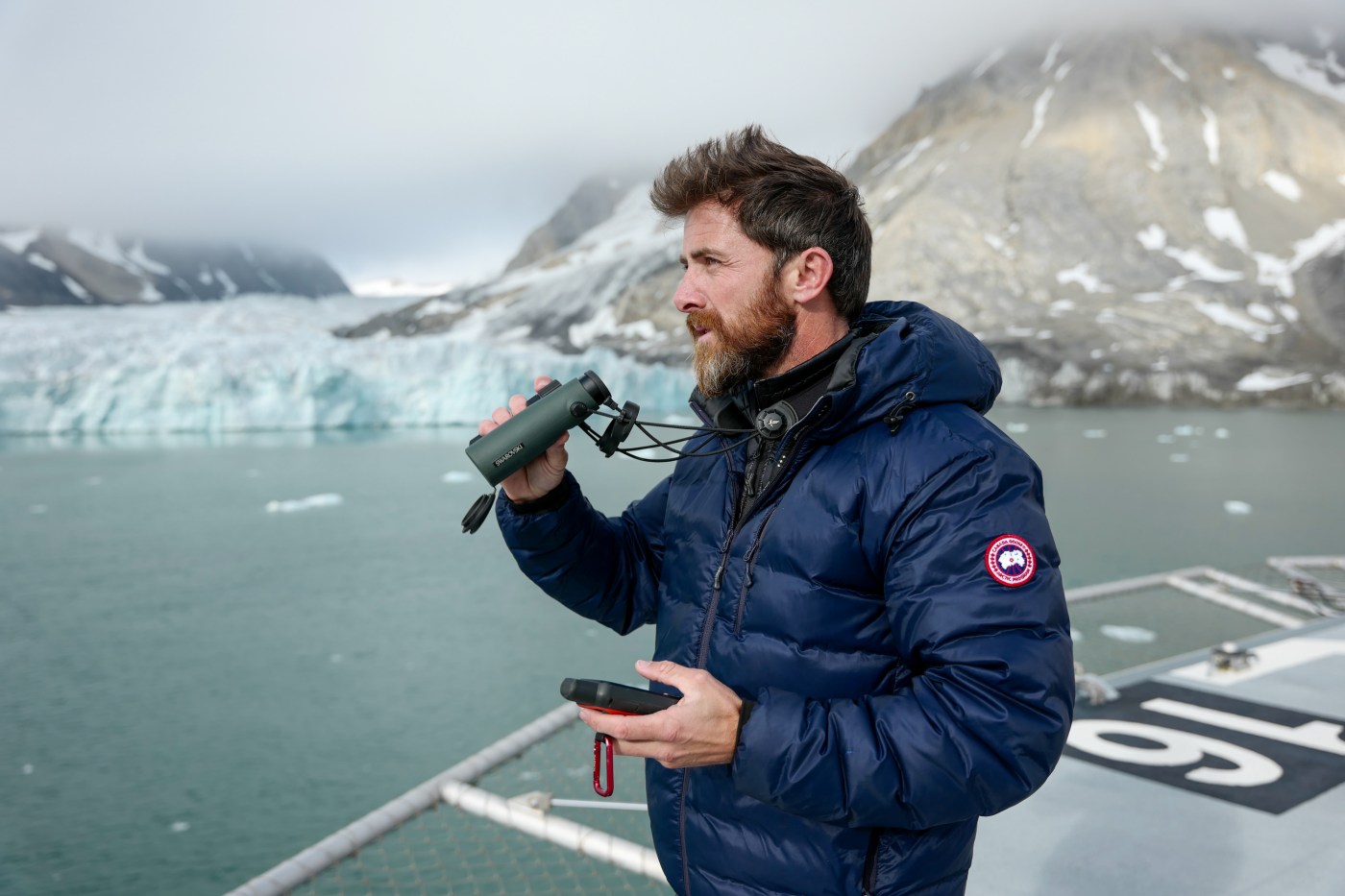
‘OceanXplorers’ takes deep dive into ‘last frontier’
Sunday night’s NatGeo “OceanXplorers” is a collaboration with James Cameron and the BBC to explore the oceans, “the last frontier.”
Aldo Kane, a former Royal Marines Commando sniper, is part of the media crew aboard the Ocean X, one of the most technologically advanced vessels on the planet.
“It’s a huge collaboration aboard the ship which was purposely built as a nonprofit for global science, media and exploration,” Kane, 46, said with his pronounced Scots accent on a Zoom interview. “It really is a coming together of a lot of minds.
“I joined the Marines at the age of 16 — that’s Britain’s elite fighting force — and spent 10 years there. In that time, I became a specialist in operating at sea, in the jungle, desert and Arctic.
“I specialized in technical things — like technical diving, technical climbing, mountain climbing. Adventure was essentially the root of all that. The reason I joined up was to get that adventure, to get outside, see the world. I didn’t ever join up to go to war, to do any of that.
“So the skills I took from the military into this expedition is to lead across logistics and people management. You’ve got several million pounds worth of assets doing incredible science work. That’s what a lot of the military skills that I had and brought to the table allowed us to do with it.”
His destiny with “OceanXplorers” began in LA with the man himself.
“When I first went for my interview with James Cameron and his team, the emphasis was on ‘The oceans are in a terrible state. Eighty-odd percent of them are unexplored. Most of them have signs of human pollution in them.’
“Obviously, a great passion of James Cameron’s is the ocean and the protection of it. And what they wanted was that this was to be an odyssey of exploration in the Atlantic. To show everything from the top all the way down to the seabed. And to show just how little we actually know of the ocean.
“But a big push of it is to get people interested in the oceans. Interested in protecting them and to understand that all of the oceans are interlinked.
“And to realize that the ocean is an integral part of the earth, our environment and our life system.”
Kane reminds us of a crucial fact: “The majority of oxygen that we breathe on this earth has come from phytoplankton, on the surface of the ocean.
“If that goes, then we are having big problems.”
So Kane jumped aboard essentially as, “A call to arms, to adventure, to exploration. But underpinned, all of it, by cutting-edge science.”
“OceanXplorers” streams Sunday on NatGeo


